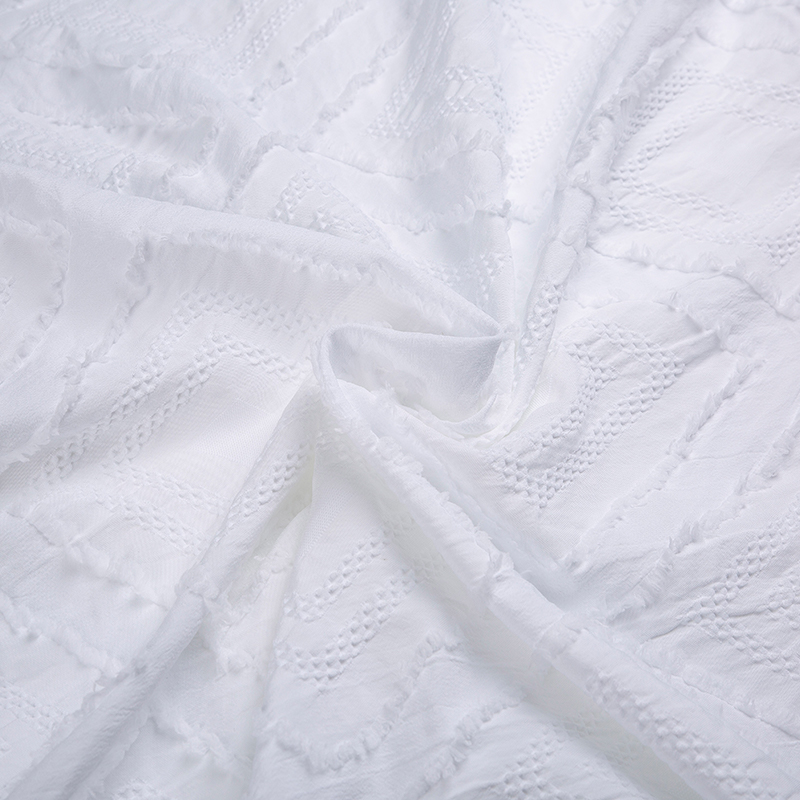Premium quality since 2002!
1. Recycled Polyester Options
One of the most notable trends in the polyester industry is the growing use of recycled polyester, often made from PET plastic bottles. This not only reduces the demand for virgin polyester but also helps reduce plastic waste in landfills. Manufacturers of tufted fabrics are increasingly adopting recycled polyester for their products, offering a more sustainable fabric without compromising quality or durability.
By reusing polyester fibers, the production process uses fewer raw materials and reduces energy consumption. The end result is a fabric that is just as durable and versatile as its non-recycled counterpart, but with a lower environmental footprint.
2. Energy Efficiency in Manufacturing
The tufting process used to produce polyester tufted fabric is energy-efficient compared to other fabric production methods, such as weaving or knitting. The simplicity of the tufting process allows manufacturers to create textured fabrics without the need for complex machinery or additional energy-intensive steps. This makes polyester tufted fabric an attractive option for manufacturers looking to minimize their energy consumption while still producing high-quality textiles.
Additionally, polyester fibers can be produced using less water compared to other materials like cotton, further reducing the environmental impact of its manufacturing.
3. Longevity and Reduced Waste
Polyester tufted fabrics are known for their long-lasting durability, which contributes to reducing waste. Products made from polyester tufted fabric—such as carpets, upholstery, and outdoor furniture—typically have a longer lifespan than those made from other materials. This means fewer replacements are needed, which leads to less waste in landfills over time.

Moreover, polyester tufted fabric maintains its appearance longer, requiring less frequent cleaning or reupholstering. This helps reduce the amount of water, detergents, and other resources typically used for fabric maintenance.
4. Recyclability and Circular Economy
Another benefit of polyester tufted fabric in terms of sustainability is its recyclability. Once a polyester tufted product reaches the end of its life cycle, it can be recycled into new polyester fibers, reducing the need for virgin materials. This aligns with the principles of the circular economy, where products and materials are kept in use for as long as possible before being recycled or upcycled.
The increasing availability of recycling infrastructure and technologies means that polyester tufted fabric can be a key player in reducing overall textile waste and conserving resources.
5. Low Environmental Impact in Dyeing and Finishing
Polyester tufted fabric also benefits from innovations in dyeing and finishing techniques that minimize the use of harmful chemicals and water. Manufacturers are increasingly adopting waterless dyeing technologies and eco-friendly finishing treatments to reduce the environmental footprint of polyester textiles. This helps to make polyester tufted fabric an even more sustainable option compared to traditional fabrics that may involve extensive water usage and chemical treatments.

 English
English 简体中文
简体中文









